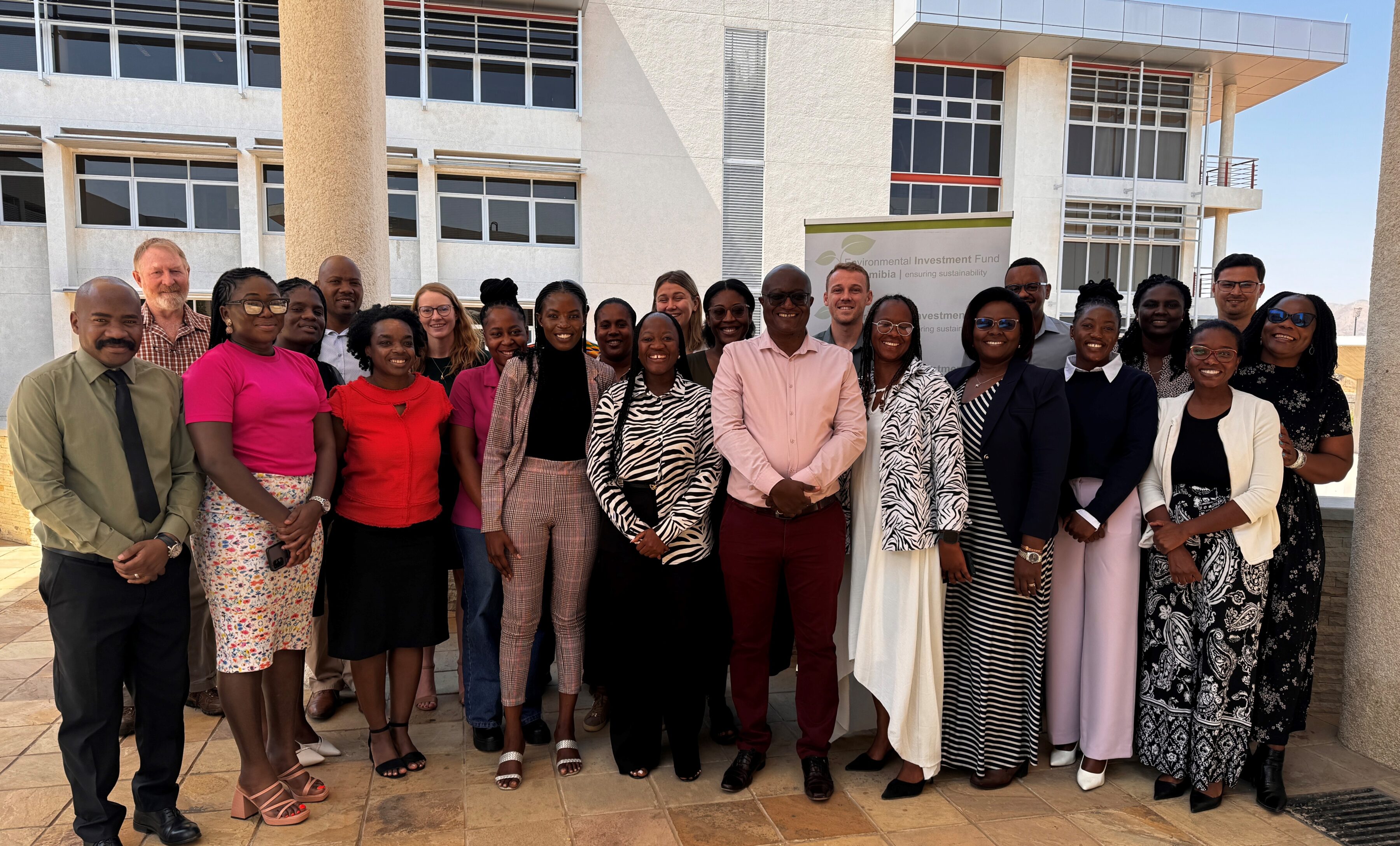Economics and climate change workshop for collaborative solutions

the Environmental Investment Fund (EIF) hosted its inaugural Economics and Climate Change Dialogue. Entitled “Assessing and Optimizing the Namibian Environmental Economics and Natural Resource Economics Skill Set”, the event focused on Environmental Economics (EE)/ Natural Resource Economics (NRE) in the context of climate change. It aimed to identify skill gaps and devise strategies for enhancing national capacity in these critical areas.
In her welcoming address, Ms. Louise Helen Brown, Deputy Chairperson of the EIF Board, emphasised Namibia’s journey in environmental economics, which began in the mid-1990s with the establishment of the Environmental Economics Unit within the Directorate of Environmental Affairs at the then Ministry of Environment and Tourism, now Ministry of Environment, Forestry and Tourism. This initiative was crucial in integrating economic principles into environmental conservation, laying a robust foundation for the frameworks and initiatives that continue to guide Namibia’s management of natural resources. “These early efforts ensured that economic analysis was applied not only to biodiversity conservation but also to broader land-use and environmental management,” she stated. “This understanding has been pivotal in recognising the economic viability of sustainable land use, ecosystem services, and conservation, ultimately informing the integration of sustainability into policy frameworks and positioning Namibia as a global leader in sustainable land management.”
The dialogue provided an invaluable opportunity to enhance EE/NRE frameworks, fostering discussions on skill development, potential partnerships, and institutional alignments across policy, academia, and environmental financing sectors. The workshop also aimed to assess Namibia’s capabilities to tackle pressing environmental challenges, such as climate change, from an economic perspective.
Facilitated by Dr. Michael Humavindu, a Namibian economist and newly appointed Executive Director of the National Planning Commission, the session benefited from his extensive expertise in Environmental Economics. Dr. Humavindu played a key role in establishing the comprehensive EE/NRE framework used in policy decisions related to agriculture, tourism, local government, and sustainability.
Dr. Humavindu highlighted that environmental economics has introduced numerous solutions beneficial for the country’s progress. “Environmental taxation has implemented levies designed to protect the environment, preventing pollution. These regulations, approved in 2019, include significant measures on plastics, which pose a serious threat to our ecosystem. Additionally, the economics of climate change has shed light on the sectors most vulnerable to climate impact by 2080, particularly commercial livestock ranching and rain-fed agriculture. However, it also presented solutions, such as developing drought-resistant cattle and seed varieties that enhance resilience to climate change,” he explained.
The event gathered a diverse audience, including representatives from the environmental and economic sectors, civil society, government ministries and agencies, banking institutions, and various stakeholder groups. Attendees included the Namibia Nature Foundation, Triple Capital, Bank Windhoek, Standard Bank, First National Bank, the United Nations Development Program, World Wildlife Fund, and media representatives from Cosmos Radio and the Confidente newspaper.
The dialogue took place at the Namibian Public Administration and Public Management (NIPAM) centre in Windhoek.